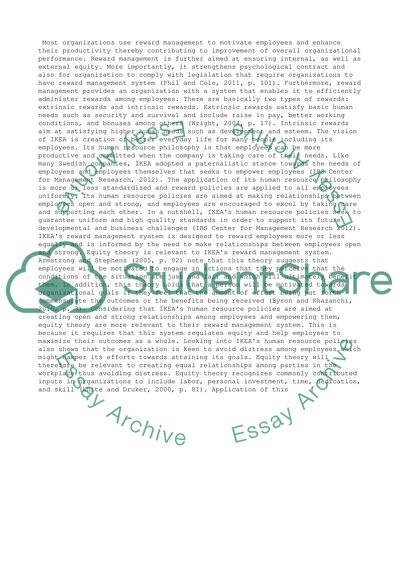Cite this document
(“Reward Management in Ikea Literature review Example | Topics and Well Written Essays - 1000 words”, n.d.)
Retrieved from https://studentshare.org/management/1463867-reward-management-in-ikea
Retrieved from https://studentshare.org/management/1463867-reward-management-in-ikea
(Reward Management in Ikea Literature Review Example | Topics and Well Written Essays - 1000 Words)
https://studentshare.org/management/1463867-reward-management-in-ikea.
https://studentshare.org/management/1463867-reward-management-in-ikea.
“Reward Management in Ikea Literature Review Example | Topics and Well Written Essays - 1000 Words”, n.d. https://studentshare.org/management/1463867-reward-management-in-ikea.


